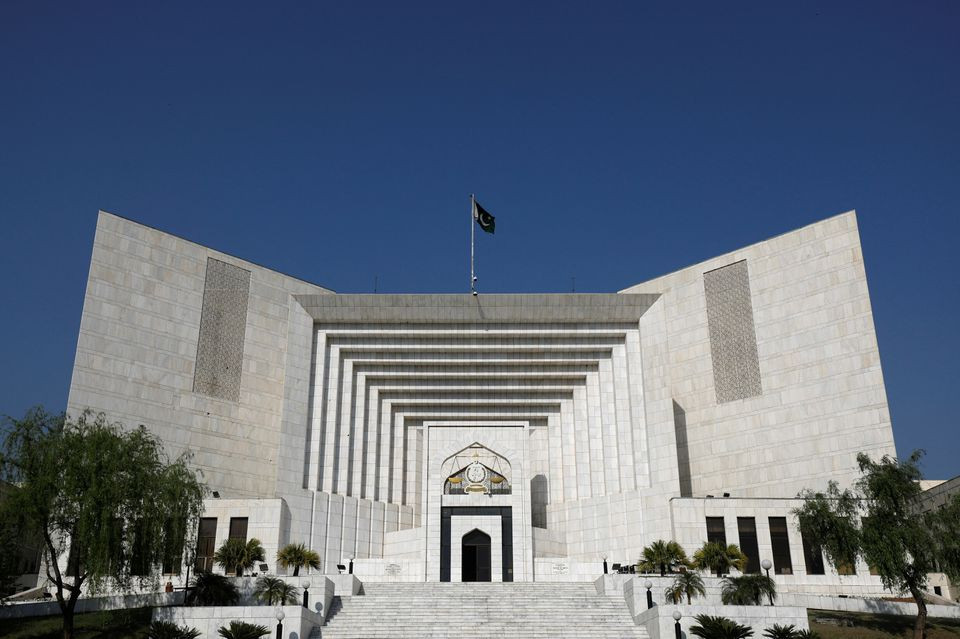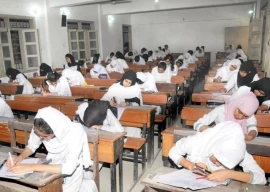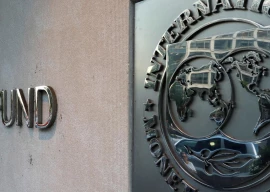
Rather than standing united to deter alleged agency interference in judicial functions, division has reigned supreme over the past three hearings in the apex court.
It all began with the arrival of a letter from six Islamabad High Court judges on the desk of the Supreme Judicial Council (SJC), exposing fault lines among the judiciary with judges finding themselves at odds over how best to address the issue.
Reports suggest that even during a full court meeting, the justices were split on the formation of an inquiry commission to delve into the allegations levelled by the six IHC judges.
Ex-chief justice Tassaduq Hussain Jilliani's decision to step away from leading the inquiry commission left a three-judge committee under the stewardship of Chief Justice of Pakistan (CJP) Isa grappling with the issue.A larger bench comprising seven members took the reins, initiating suo motu proceedings to delve into the allegations raised by the IHC judges.
During the first hearing, CJP Isa staunchly defended his actions in the wake of the letter from the IHC judges. However, dissent reared its head in the form of Justice Athar Minallah, who disagreed with the first 12 paragraphs of the order issued by the larger bench.
Interestingly, the first judicial order issued by the larger bench was conspicuously absent from the Supreme Court's website before Eid, though it was available to the copy branch.
In the first hearing, CJP Isa had hinted at constituting a full court to tackle the issue at hand. Notably, Justice Minallah had referred to the word 'full court' in his additional note.
Later, following the withdrawal of Justice Yahya Afridi, a six-member larger bench convened on April 30 to deliberate on the matter. However, stark disparities in viewpoints emerged between CJP Isa and Justice Minallah regarding the alleged interference of agencies in judicial functions.
Moreover, despite the order being dictated in open court, it remained unissued. Consequently, due to the order not seeing the light of day, the federal government was unable to submit its response.
Read Lawyers strike against ‘meddling’
Attorney General for Pakistan (AGP) Mansoor Awan told the bench on Tuesday that the reply couldn't be submitted as the written order was yet to be received.
Curiously, it came to light that certain judges hadn't put pen to paper to sign the order. The order from April 30 was presented before the judges during an open court session, awaiting their signatures.However, the debate persists as to why the order did not reach the judges for their signature.
It remains murky whether the order that was verbally outlined in open court saw the light of day or if something crucial went amiss.
Justice Athar Minallah appended his additional note with his pen during the open court session.
Justice Minallah noted that the federal government has to submit its response to the great status of interference by the executive as highlighted by all the courts.
“This is the most serious and grave undermining of the independence of judiciary which cannot be trivialised.”
He said that the federal government controls the intelligence agencies and it is for the federal government to explain its position before this court.
The buck stops with the federal government. “The High Courts have indicated the phenomenon has existed until recently,” he added.
Throughout the three hearings, a lawyer shared that three distinct perspectives have surfaced within the bench. Firstly, there are those advocating for the establishment of guidelines for the future.
Secondly, there are proponents of erecting barriers as a precautionary measure before progressing further. Lastly, there are proponents of leaving the matter to the high courts for resolution.
Similarly, he noted that there exists a schism among Supreme Court judges regarding the investigation into this issue.
One faction seeks to assign accountability through the investigative process, while another faction aims for the investigation to uncover the truth.Throughout the hearing, no observation has been made by CJP Isa for the endorsement of the concerns raised by high court judges regarding the intrusion of agencies into judicial matters.
Observers note that the internal discord within the Supreme Court undoubtedly plays into the hands of the executive and security apparatus. It is undeniable that if judges persist in opposing each other's views openly in court, the judiciary will undoubtedly suffer further weakening.






































COMMENTS
Comments are moderated and generally will be posted if they are on-topic and not abusive.
For more information, please see our Comments FAQ